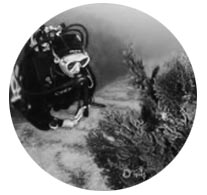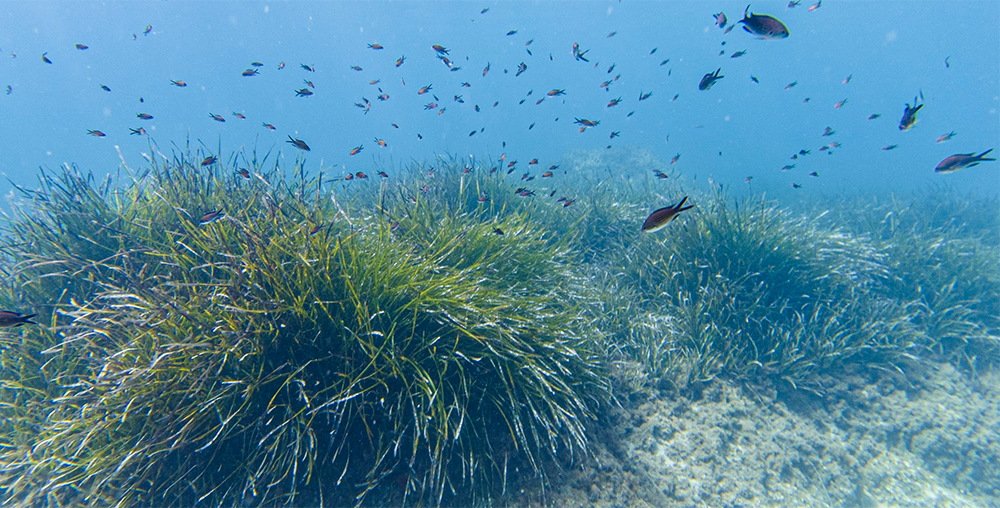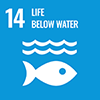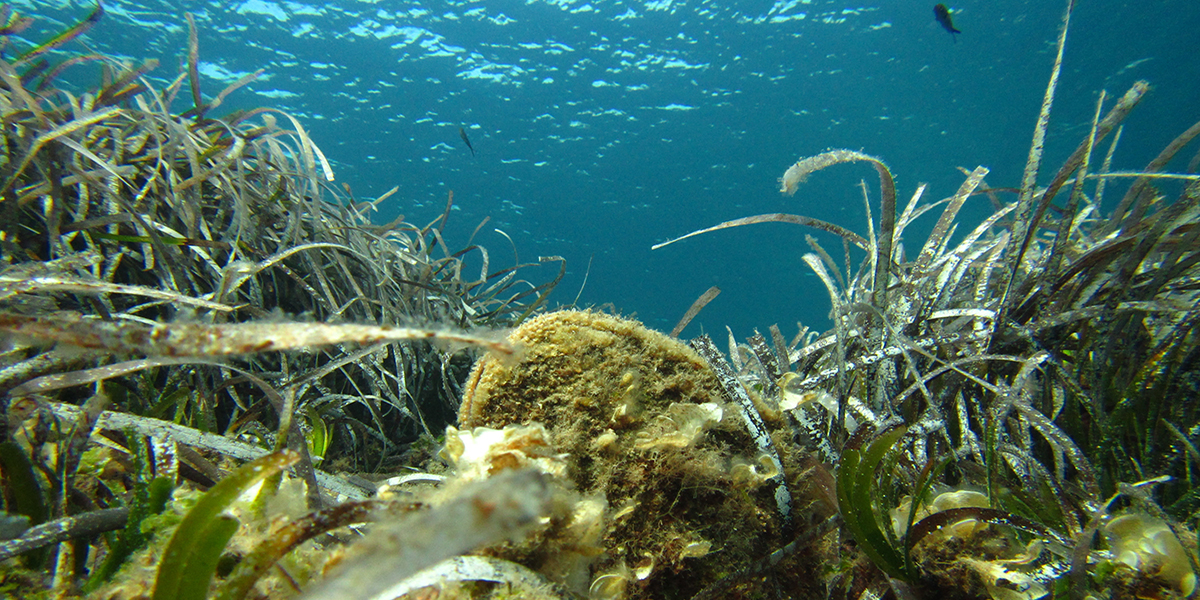
Francesca Frau
Marine Biologist | Coordinator

Andrea Alvito
Marine Biologist

Michela Congiu
Project Officer

Nicoletta Cadoni
Marine Biologist


Sustainable Development Goals:
 |
 |
Let’s talk about Posidonia oceanica
Posidonia oceanica is a higher plant endemic to the Mediterranean Sea and the most widespread seagrass species in these waters.
P. oceanica plays a key role in the conservation of Mediterranean ecosystems and provides important ecosystem services such as:
Regulating ocean acidity (producing oxygen up to 20 l / day per m2)
Fixing and sequestrating Carbon (up to 426.6 grams per m2 / year)
Habitat for numerous marine species, especially in the juvenile period (nursery function)
Seabed stabilization through sediment capture and wave energy mitigation
Consolidation of sandy beaches from coastal erosion by leaves and rhizomes beaching that form real protective barriers for the beach (banquettes)


Posidonia oceanica meadows have registered a general trend of regression throughout the Mediterranean Sea. It is estimated that in the last 50 years, around 46% of the Mediterranean Sea meadows have suffered a reduction in extent, density or cover, and 20% have severely regressed. This requires an urgent response and the implementation of concrete actions for environmental restoration, forestation and conservation of Posidonia oceanica meadows.
The planting of new plants aims to restore damaged areas that suffer from large-scale regression, often caused by anthropogenic activities such as free anchoring and illegal trawling. The first step of the forestation activity consists of the selection and collection of cuttings, using only those that have been naturally detached and collected in nearby areas. Then, the plants are prepared on the surface and planted after a few hours.
The technique of planting the cuttings consists the use of Posidonia oceanica plants that are anchored to the natural bottom (dead matte) with the use of small pegs that are removed after the formation of new roots.
Target

Support our Campaigns
Our actions are supported by organizations that want to make a difference to protect the marine and coastal ecosystem to avoid particularly negative impacts, also by strengthening their resilience, and to act for their restoration in order to obtain healthy and productive oceans.
Together with some of them we have implemented concrete projects to protect our sea restore damaged areas of Posidonia oceanica meadows.
The actions that we will continue to carry out together in the next decade to protect our sea will affect the future of our planet for centuries to come: we have a huge responsibility towards the planet, towards ourselves and future generations.
It is time for action, and together we can still make a difference.
Our partners
MPA Capo Carbonara, MPA Penisola del Sinis – Isola di Mal di Ventre, MAVA Foundation, Prada Group, Luna Rossa, Sotheby’s, Extreme-e
Pic © by Andrea Alvito
Our Team dedicated to marine ecosystems conservation:




